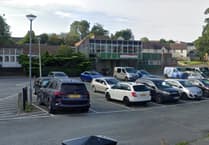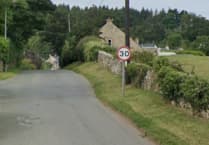An appeal against a previously-refused ‘blot on the landscape’ financial trading telecommunications mast in the Preseli hills have been dismissed by a Welsh Government-appointed inspector.
Last October, Pembrokeshire Coast National Park planners refused an application by Britannia Towers Ltd, on behalf of Wholesailor, to build a 51-metre-high telecommunications tower supporting nine transmission dishes and six mobile coverage antennas on privately-owned land at Pantmaenog Woodlands, Rosebush, an area of outstanding natural beauty.
It refused the scheme on the grounds it “would have an unacceptably adverse impact on the visual amenities and landscape character of the national park”.
Since then, National Park planners, at their September 2023 meeting, heard the applicants had lodged an appeal with Planning and Environment Decisions Wales (PEDW).
The tower would primarily have been used to link two data centres in London and Ireland, mostly related to financial trading, but would also improve local mobile phone signals, with Vodafone committing to use it should the appeal be successful.
The scheme had led to local objectors, including Maenclochog Community Council, which had said it “would be a blot on the landscape,” while concerned locals raised objections including the mast’s visual impact, the potential health impact of such a powerful transmitter sited near to people’s houses, and fears of it setting a precedent.
Inspector Thickett dismissed the appeal on November 21, saying the main issue was the impact of the proposed development on the landscape of the Pembrokeshire Coast National Park.
“I consider the proposed tower, dishes and antennae due to their location and height would have a significantly adverse impact on the landscape of the National Park,” said Mr Thickett, adding: “The overtly industrial and modern appearance of the proposed development, including the equipment cabinets and fencing, would be seriously at odds with and detract from the sense of remoteness and wildness which are identified as special qualities of this important landscape.”
He noted the support from Vodafone, its commitment to use the tower should the appeal be allowed and the argument that this would improve coverage and capacity in the surrounding area, but stressed that, while policy supported the provision of digital communications infrastructure, it recognised that infrastructure in rural areas should be carefully planned to mitigate any impact on designated landscapes.
“Any benefits that may arise from the proposed development are outweighed by the harm described above,” he added.
Campaigner Peter Ainsworth said: “I am heartened by the decision to deny the appeal for the construction of a communications tower in the Preselis.
“This victory is not just for the local residents but for everyone who cherishes the intrinsic value of our landscapes. The Preseli Mountains are more than just a scenic vista; they are a sacred place of vital cultural and psychological significance.
“Erecting a private communications tower for profit-driven motives is a proposition that stood in stark contrast to the values we hold dear in our community.
“While we understand the need for technological advancement, it should not come at the cost of compromising areas of outstanding natural beauty and social significance.”
Mr Ainsworth said campaigners were aware the applicants could seek a judicial review, but were “confident that any further challenges will also be met with a firm commitment to preserving the sanctity of the Preselis”.




